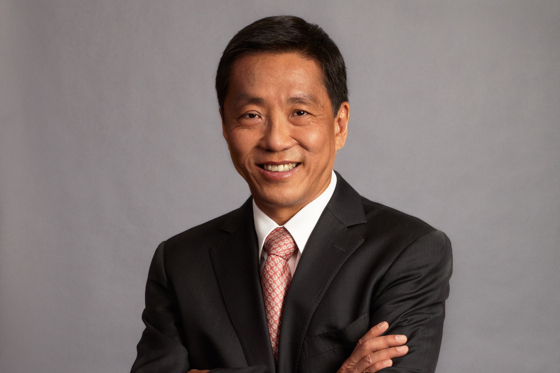Led by Executive Chairman KP Ho, Banyan Tree Holdings, Singapore, has an eye toward aggressive growth, with plans to double the size of its portfolio, which includes the Banyan Tree and Angsana brands, in short order. The goal is to grow to 66 hotels and resorts and 117 spas in 33 countries by 2017-18. The primary focus is China, but openings also are planned for India, Malaysia, the Middle East, Morocco and Spain.
One of the most exciting components of that growth is Cassia, a new brand in the serviced-apartment sector. Cassia will offer one- and two-bedroom units with flexible living and dining options as well as a range of facilities in the heart of key tourist destinations. Perhaps most significant, it represents a market that is completely new for the company.
HOTELS recently asked Ho about the company’s expectations for Cassia, its broader business outlook and its ongoing commitment to doing business in a sustainable way.

HOTELS: Briefly discuss the philosophy behind launching Cassia as well as your expectations for the brand.
KP Ho: Cassia is the result of careful evaluation and research, where we identified a gap in the niche sector between hotel and apartments. Complemented by the phenomenal growth of the middle class globally and especially in Asia, we saw an opportunity to merge our group’s strength’s in hospitality, design and real estate to create an innovative product in the extended-stay segment that would appeal to the lifestyle and needs of these travelers.
Being the newest brand in our group, Cassia also presents exciting opportunities to travelers looking for affordable vacation homes, which can also generate an investment on return.
We have five [Cassia] projects in development in Thailand, Indonesia, Sri Lanka, Australia and China. The Phuket property, our first Cassia, is scheduled to open towards the end of 2015, and to date 70% of the Cassia Phuket project and 45% of the Cassia Bintan project have already been sold.

HOTELS: Who is the target guest for Cassia?
Ho: When designing Cassia our target audience is the growing middle class, especially in China and across Asia, who are looking for a hospitality product that meets their demands and needs. With the phenomenal growth of this middle class we wanted to create a product that would appeal to their lifestyle, their travel demands and needs. Cassia has been designed with young couples, business travelers, groups of friends and small families in mind.
Cassia offers guests a different style of accommodation — unique space configurations and the flexibility to make their own choices without losing any of the benefits of a hotel. Guests can enjoy many of the same facilities as in a hotel such as a pool, gym, spa and food outlets as well as proximity to a great destination while giving them the choice to decide where they eat, how often they wish housekeeping to clean their room, etc.
HOTELS: Discuss your position as a “sustainable” brand and balancing your commitment to responsible business with optimizing the bottom line.
Ho: Having launched our flagship resort in Phuket in 1994 on a formerly abandoned tin mine, sustainability has been key to our business philosophy since the very beginning. Since then, Banyan Tree and Angsana have flourished as sustainable leaders in the hospitality industry.
We remain steadfast in our belief that sustainability must be core to any business; it is imperative that hotels support and create pride for their locations, honoring and empowering the local communities and environment. With all of our properties we consider the ways in which we integrate ourselves into the local communities.
Ultimately resort development is a double-edged sword; we have the opportunity to do tremendous good, but we have to be mindful that it is not seen as green wash. Our mindset from the beginning has been to do good whilst supporting our triple bottom line of how we can support economic development, minimize negative impact on the environment and ensure there are positive contributions made to the society in which we engage.
We realize discerning consumers prefer to link their purchasing power with sustainable values whilst our associates like to be identified with a company that reflects strong values. Some of our key achievements include Banyan Tree Gallery, our retail arm which supports indigenous artistry and craftsmanship; our Green Imperative Fund where we match donations from guests to promote efforts to empower communities and environment issues; and our Marine Laboratories in the Maldives and Indonesia where marine conservation is studied and practiced. We are also proud to work alongside EarthCheck at our properties — our recent Gold Certification for Banyan Tree Lijiang was the first of its kind in China.
We will continue to grow our sustainability programs. Our most recent initiative, Stay for Good, was launched in early 2014 to highlight sustainability-orientated guest experiences, encouraging our guests to immerse themselves in the local culture and environment across our resorts.
HOTELS: How has business overall been for the company? What are your expectations going forward?
Ho: We have an aggressive growth strategy to propel our company’s portfolio forward by doubling our size over the next five years. Our focus has been on emerging markets; however, we are expanding into mature markets as we see projects now back on track that were previously on hold during the global economic crisis, so expectations are high and positive.
Our pipeline remains strong, and in the latter half of 2014, we are opening two new properties in China — Banyan Tree Yangshuo featuring 142 suites and villas on the banks of the Li River, and Angsana Xi’an Lintong, a 403-key resort located 15 minutes from the renowned Terracotta Warriors.
